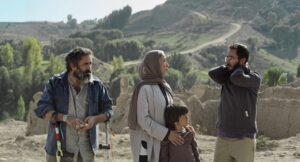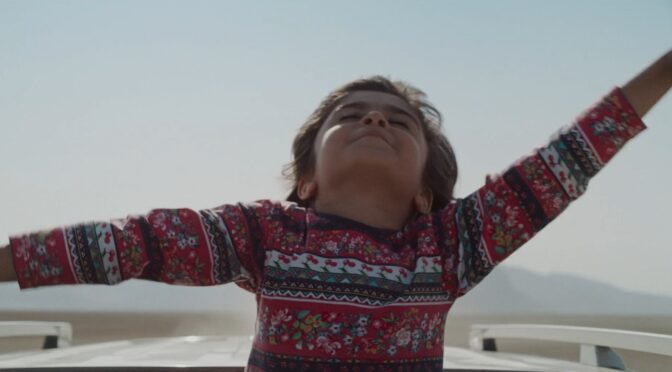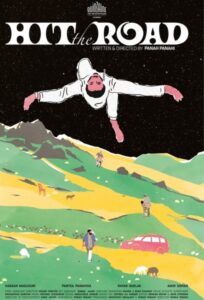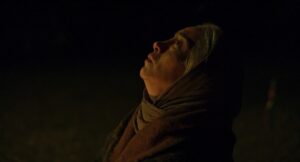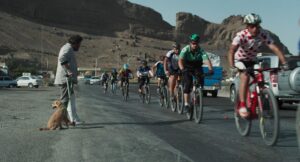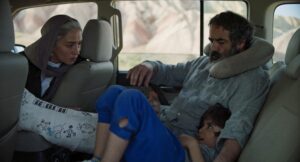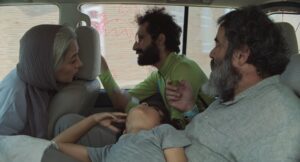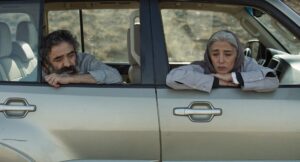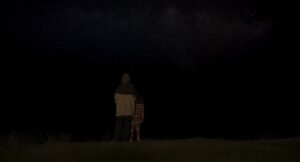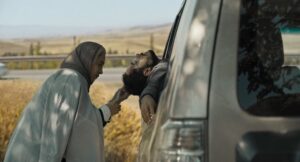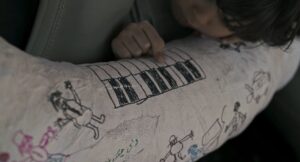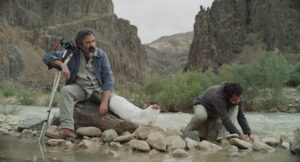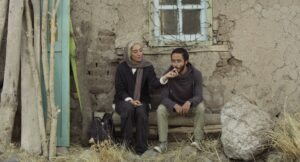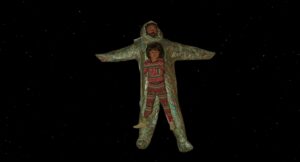Benefits of Ozempic for Weight Loss
The weight loss benefits of Ozempic are not fully understood, but several factors contribute to its effectiveness. By reducing appetite and increasing feelings of fullness, it helps individuals consume fewer calories. Moreover, Ozempic’s effect on blood sugar control indirectly influences weight loss, as better blood sugar management can reduce sugar cravings and overeating visit https://www.timesunion.com/.
Ozempic and Blood Sugar Control
For those with type 2 diabetes, Ozempic offers dual benefits of blood sugar control and weight loss. It helps maintain stable blood sugar levels by stimulating insulin release when needed and suppressing glucagon, a hormone that raises blood sugar levels.
Using Ozempic for Weight Loss
To use Ozempic for weight loss, it is essential to follow your healthcare provider’s recommendations carefully. The medication is typically administered once a week via a subcutaneous injection. Your healthcare professional will determine the appropriate dosage for you.
Side Effects and Precautions
Like any medication, Ozempic can have side effects. Common side effects include nausea, diarrhea, and abdominal pain. In rare cases, it may cause serious side effects, so it’s crucial to report any unusual symptoms to your healthcare provider promptly. Ozempic may not be suitable for everyone, so a thorough discussion with your doctor is necessary.
Ozempic vs. Other Weight Loss Medications
Ozempic is just one of several weight loss medications available. It’s important to consult with your healthcare provider to determine which option is best for you. The choice may depend on your medical history, preferences, and individual goals.
If I could designate each film year its own piece of internet speak then 2022’s would absolutely be “get you someone who can do both.” It was a year where a vast majority of the cinema’s heights came from films with a varied skillset. A ticklish Waking Ned Devine-style Irish tourism comedy keened with despair. A Jaws-esque survival thriller was packed with ideas about exploitation and racism in the entertainment industry. A zany multiverse action film had audiences sobbing buckets and calling their mothers. The year’s box office success story was how a sequel to a ridiculous 80s action movie best known for being a homoerotic military recruitment tool managed to be a sumptuously entertaining and well-acted drama (and maybe also a homoerotic military recruitment tool). The films of 2022 contained multitudes that would have made Walt Whitman blush. TO wit, I had one of my heartiest laughs of the past film year while watching a scene suffused with loss and unspeakable longing. In a late scene from Panah Panahi’s astonishingly confident debut Hit the Road, a father lays by a campfire close to the border of Iran and Turkey. His 7-year old son lies on top of his chest and his wife sits of a ways by herself staring off in tearful silence. The family has just had to pay a wrenching farewell to someone close to them and they do not know when they will see their loved one again. The weary father lists, eyes half closed, as his motormouthed child goes on about Batman and his famous Batmobile. He asks his child how much he figures the extravagant vehicle costs and the child has an answer at the ready: six-hundred million dollars. This leads the father to propose a hypothetical anecdote about “the poor orphan Batman” and his precious car that had me literally crying with laughter. And laid over this funny exchange is also one of the most heartrending, emotionally observant scenes of 2022 with all the sensitive direction and softly twinkling music one would expect from a tragedy. Because Panahi’s masterful scene really is a slice of tragedy. It’s a tragedy and it happens to be one of the most ticklish scenes of the year. And if that sounds like a perplexing balance, the most puzzling thing of all is how perfectly harmonious the poignance and daffy humor are in the moment. It surprised me on a first viewing. On a second viewing, I realized with astonishment that this first-time Persian director had actually been holding that delicate balance between the gently gutting and the sublimely funny for the entire film. Hit the Road spends 93 perfect minutes on standing on a pinhead between a bell laugh and a choked sob. Iran’s already-vibrant cinema scene just got itself someone who can do both.
Hit the Road opens to the sounds of plaintive piano keys and the white noise whoosh of speeding cares. A car sits parked on the shoulder of an Iranian highway and its passengers, an older man and woman, their two sons (one in his twenties and one seven) are all lying still inside with eyes closed. After what feels like a minute, the small Batmobile-admiring child stirs and the other occupants all rouse from their slumber. But the hyperactively eccentric child (is there any other kind?) asks a question that might have occurred to the audience already: “Are we dead?” They are not in fact dead, but something does feel instantly woozy and off about Panah Panahi’s superb road trip dramedy. A sense of ennui and tension hangs in the air, made all the more noticeable by the fact that Hit the Road retains the breathlessly antic humor that is the road trip comedy’s stock in trade. The comedy (sometimes high energy and sometimes drolly understated) throws the spectre of unspoken sorrow into sharp relief. We gradually come to learn that, unlike most films about family car trips, this one will not feature a journey home. It will not feature one because there is no home to return to. The family has pooled all their money, sold their house and car (their soft-spoken, visibly devastated eldest child drives them in a rental) all to get their grown son to the Turkish border and to book the services of someone who can help him safely cross over. There is no talk of return and they will not be going with him. There is no talk about what comes next. The eldest is driving toward a new life and will not see his loved one again for a very long time, if ever. And the rest of his family are, as the Talking Heads say, on a road to nowhere. This looming sadness does not negate the fact that Hit the Road still has many of the warm signifiers of its genre. The family bickers comically, have some spirited hijinks, meet colorful strangers and generally bond. The tropes of the road trip comedy are all present and accounted for, but they coexist in uneasy harmony with the mournful realities and anxious uncertainties of this family’s unfortunate situation. Panahi patiently and empathetically lets rich humor and tearful pathos commingle until you no longer know if your eyes are moist from laughter or heartbreak (this was a major contender for Carnivorous Studios’ fifth annual Damp Face Award). Hit the Road takes the expression “permanent vacation” and mines it for its most unexpectedly bleak implications.
Hit the Road is an achingly lovely, humane film. Like Life and Nothing More, the late Iranian maestro’s Abbas Kiarostami’s masterpiece about a town recovering from a deadly earthquake, this film loves people and it believes in the average person’s desire to be good and helpful to their fellow man. Its sense of sweet humanity is so winning that it may take you some minutes to register that it is a deeply pissed off piece of work. Hit the Road is a furiously critical and deeply political work of art. It’s angry in a way that compassionate people pushed too far by abuse are angry, which sums up my experience with Persian art very succinctly. A great many Persians wish simply to dance sing and love on their own terms, but they have had to contend for decades with dogmatic rulers who demonize sexuality, oppress women and silence their greatest philosophers and artists (we’ll talk about Panah’s long-persecuted filmmaker father in a short while). Hit the Road is one of the most righteously enraged kiss-offs to a country that you will ever see, made all the more rich by how conflicted it feels about the idea of severing ties with home. It rages quietly and with the patient wisdom of a martyr. It holds onto its humanity because that is what any virtuous, unjustly trampled upon person does, but it is not satisfied with moral victories. At the end of the day, however true and rights its position is, righteousness and decency and moral virtue isn’t going to do one solitary thing to keep this poor family together or give them a future. Goodness is an intrinsically valuable thing but it does not give this family what it truly needs: answers. What comes next? Where do the people of Iran go from here? If great art raises questions rather than giving easy, pat solutions, Hit the Road is an unqualified triumph. Panah Panahi’s soulfully wronged meditation on the idea of home is one of the greatest films of the nascent 2020s and one of the most subtle and powerfully realized directorial debuts in cinema history.
While it regards its characters with an unflaggingly sympathetic grace, Hit the Road is gently but firmly critical about denial. In a smart bit of metaphor, the parents are hiding two important truths from their youngest child. They do not let on that he will be losing his brother, possibly for good. They also do not tell him that the family dog, along for the open-ended ride, is dying. The essence of Hit the Road is pure punk rock in the way it damns the hypocrisy and cruelty of Iran’s policies, particularly those armed at gays and women. The parents’ struggle to tell their child the hard truths is like a projection of their nation’s abuse and what Papnahi is asking of his fellow Iranians is a shattering of that perverted, dysfunctional cycle of lies. It is an angry punk song set to a sweetly meandering melody. It recalls the special blend of love, bruised hope and anguish that made Spike Lee’s ending to The 25th Hour so powerful. As the film stares down the road at painful change and separation, the feeling of impending loss also speaks to the beauty of connection and family. In overwhelming grief, it finds occasion to think about love and community; to offer up a smile of gratitude for the very thing that is being taken away. It presents those things with overflowing heart and humor and it saves all its bitter anger for the powerful unseen targets who deserve it. The genius of letting Hit the Road function as a funny, vibrant, emptionally satisfying road trip movie is how that calls attention back to the sorrow at the films heart. In other words, this should be an uproarious story of love and familial bonding on the road and nothing else. That’s why that simultaneously hilarious and heartbreaking Batmobile monologue the father gives isn’t merely impressively multi-dimensional but essential to the film. It is Panahi’s entire thesis in miniature because this family should be able to have that laughter and joy without the heartache and loss. And they can not. They feel so close to being on the kind of vivacious, fun and life-affirming vacation that make up most road trip films, but that is a trick of the light. In reality, they might as well be light years away: from normalcy, from stability, from an empathetic government, and, before long, from their beloved child. They have miles and miles and miles to go before they can even imagine anything feeling right again. If that happy ending exists somewhere down this family’s long, bumpy road, it is not to be found in this film.
And yet, in spite of its unwavering honesty, Hit the Road does find a way to hold on to some open-ended note of hope for the future. I’ll be damned if I can describe what that hope specifically is or what it even might look like. It feels more like the kind of hope that the faithful hold for the afterlife; a vague and stubborn resolve that one day in the future will be the day that things start looking a little better. Partly, that’s a product of the film’s warmth and infectious good humor. It may partly be there to throw the sadness into sharper relief, but it also makes it hard for me to not see Panahi’s film as a work of optimism on some level. It gets back to that punk rebel sensibility that is so impervious to defeatism. The hope isn’t that this mortifying state of affairs is going to turn around, but hope for its own sake. It’s not a hope for Iran’s callous government or really a hope for anything. It’s hope because what else are you going to do? Hope, unrealistic or not, is its own intrinsic good and you hold to it because not holding onto it means losing everything. Hit the Road may carry a lot of pain and disappointment, but it carries it with a resolute heart. Its pain is also its unbowed strength; its will to persevere even when the situation seems so desire that it’s nigh impossible to determine what perseverance is even for. There is also just the matter of Panahi’s elegant, eloquent and unpretentiously literate script, so full of wry comedy and honest wisdom. It’s the kind of perfectly poetic screenplay that manages to feel both grounded and transcendent. At one moment, a farmer sees the father’s arm in a cast and asks how it happened. “I fell” the uber-dad deadpans. The farmer asks where he fell. “From grace,” the father sardonically adds. The film is full of sharp, potent lines like that. It is utterly profound and transporting in its writerly flourishes. And yet, at no point does the heady rhetoric threaten the realness of these characters. They are compelling flesh and blood people and the understated confidence of their dialogue works to increase our love for them and draw us further into their lives. The dialogue, like the humor and the gorgeous scenery, is all there to help them and help us find some small bit of peace and relief. It’s not just false hope to help bitter medicine go down, but a reminder of what makes life beautiful and worth living. Laughing and loving in the face of systemic barbarism and apathy is the most rebellious thing we can do. And, after just one feature, Panah Panahi already has enough rebel clout to make him a luminary on the subject.
Panah has stouthearted defiance in his blood. His father is the great Iranian director Jafar Panahi, who spent the last two decades being harassed, threatend, jailed and censored by his own government. In 2010, he was arrested for trying to make art that criticized the legitimacy of the Ahmdinejad regime and was sentenced to six years under house arrest and, most cruelly, a 20-year ban on making his art. Only a year later, Jafar let Iran know what he thought of their policies by making the brilliant documentary This Is Not A Film, which not only documented his house arrest but insightfully tackled the question of how one makes art under censorship. The full answer to that question can be best understood by watching the film, but the short answer is you do it by any means necessary and without fear or reprisal. This Is Not A Film was smuggled out of Iran inside of a birthday cake and took the film world by storm. Since then, Panahi the elder has made five more acclaimed films that he was technically forbidden from making at all, including the thoughtful 2022 gem No Bears. Like Hit the Road, all of Jafar Panahi’s recent films thumb their noses at Iran’s tyranny. Panahi plays a gleefully defiant Robin Hood to his government’s craven Prince John, stealing despotic undies and running them up the flag pole. But sobering news came in mid-2022 when Jafar Panahi was thrown into a notorious prison for the crime of coming to the defense of another persecuted Persian director. There were accounts of physical abuse and with them a sinking feeling that Jafar had pushed these cruel authoritarians as far as he could. He had been living out something like his own personal Cool Hand Luke for many years now and that story, as thrillingly subversive and rebellious as it is, ends in tragedy. Maybe this time, the Iranian government would shut Jafar away for good or do something worse. After almost seven months of imprisonment, Jafar Panahi gave his government an ultimatum. He started a hunger strike and gave Iran two options: his own death or his absolute liberation from the prison. Film fans braced for a noble but gutting conclusion to this rebel story. Hit the Road takes up Jafar Panahi’s torch. It poses the question of how you create hope out of nothing at all, out of hope’s very absence. The son in the film has a late moment of peace and love in a road side chat with his mother. He talks of his admiration for Kubrick’s 2001: A Space Odyssey. In the third act of that film, an astronaut journeys into a terrifying void, but that is not the end of the story. Its enigmatic final shot suggests the possibility of, well, possibilities; of new life and something hopeful beyond the abyss. Even if he does not know what it will be, Panah Panahi stalwartly believes in love, solidarity and hope beyond Iran’s political abyss. On February 3rd of 2023, two days after beginning his hunger strike, Panah’s father was released from prison and went home to his family.